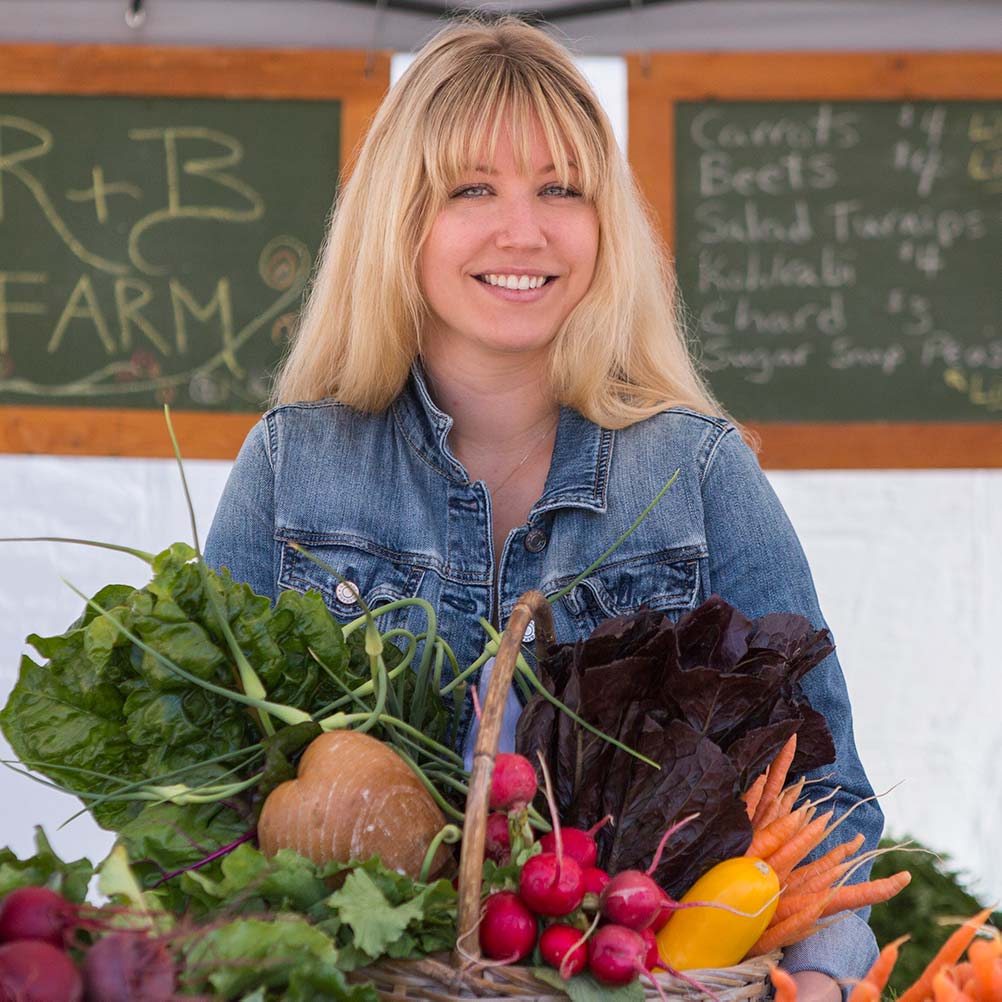
World Food Day at UBCO
October 16, 2020
World Food Day was founded by the UN’s Food and Agriculture Organization in 1945 to increase awareness of world hunger and poverty and to inspire solutions for world change.
This year, UBCO is recognizing World Food Day by supporting its mission to improve agricultural productivity.
Environmental degradation, loss of agro-biological diversity, food loss and waste, and a lack of food security are only some of the issues that underline the imbalance within our global food systems. UBCO is committed to supporting innovative solutions based on scientific evidence so we can make food systems more resilient and robust, and deliver affordable, sustainable healthy diets for all.
Why It Matters
people worldwide do not have regular access to safe, nutritious and sufficient food.
Approximately 14% of the food produced for consumption globally each year is lost before reaching the wholesale market.
If our food systems are not transformed, undernourishment will greatly increase by 2050. The consequences could worsen due to income inequality.
Intensified food production, combined with climate change, is causing rapid loss of biodiversity. Currently, only 9 plant species account for 66% of total food crop production.
What UBCO is Doing
All week leading up to World Food Day, we will be showcasing one of UBCO’s many initiatives to promote food sustainability, reduce food insecurity, and lessen our collective impact on the environment when it comes to food procurement, consumption and waste. See the squares below to learn a bit more, and check back in every day as we update this page with stories from our campus and community.
Waste and Packaging
Waste and Packaging
Ocean Wise Seafood
Ocean Wise Seafood
50/50 Meatballs
50/50 Meatballs
Supporting Local Farmers
Supporting Local Farmers
The Juice Project
The Juice Project
Packaging is an important component of food sustainability and the health of our environment. Compostable products are defined as biodegradable and non-toxic. They break down into water, biomass, and carbon dioxide within 90 to 180 days of disposal. In addition to their ability to completely break down, they also disintegrate into the compost with nothing left behind. So, not only is composting safer to human and environmental health, but it basically leaves behind no negative effects whatsoever.
UBCO Food Services is committed to being more mindful of the impact of food waste and food packaging waste in our serveries, on our campus, and in our communities. We are offering less single-use plastic by way of cutlery and straws, and offer compostable take-out containers and cutlery options.
If you’re looking for ways to avoid unnecessary or single-use packaging, consider shopping from bulk bins or zero-waste grocery stores, looking for packaging that is biodegradable, and using reusable containers and cups when possible.
Ocean Wise™ is a Vancouver Aquarium conservation program created to help businesses and their customers identify and purchase sustainable seafood. The Ocean Wise symbol next to a seafood item assures you that menu option is the best choice for the health of the oceans. At UBCO Food Services, all our fresh seafood is certified Ocean Wise, and we are actively working toward ensuring all the seafood we offer is Ocean Wise certified.
Sustainable seafood can be defined as species that are caught or farmed in a way that ensures the long-term health and stability of that species, as well as the greater marine ecosystem. Ocean Wise defines sustainability based on four criteria:
- Abundant and resilient to fishing pressures.
- Well managed with a comprehensive management plan based on current research.
- Harvested in a method that ensures limited bycatch on non-target and endangered species.
- Harvested in ways that limit damage to marine or aquatic habitats and negative interactions with other species.
What can you do to make a sustainable choice if a restaurant or retailer is not an Ocean Wise partner? Just ask, “Is this seafood sustainable?” In addition to getting extra information about the item, you will also be letting the business know that sustainable seafood is a priority for you. The seafood market it heavily influenced by consumer demand. When you support a sustainable fishery or farm, you send the message that sustainable seafood is important to you. This increases the demand for ocean-friendly practices, while also taking the
pressure off overfished species. By selecting sustainable seafood you can help ensure the health of our oceans for generations to come.
UBCO Food Services created the recipe for the 50/50 meatball driven by the desire to use the best quality ingredients to make a menu item that’s tasty, nutritious and satisfying. By combining Beretta beef, Floating Leaf “ancient grain rice blend, B.C.-grown mushrooms, and seasoning, we’ve created original, delicious and hearty menu items sourced from local suppliers. Our guests can enjoy this item knowing there are helping reduce the carbon footprint beef creates, without compromising on flavour or their belly feeling full.
Eating less meat doesn’t mean you have to give it up entirely. Doing so is an easy and effective way to help significantly lower our personal greenhouse gas emissions.
“When we’re talking about sustainable diet … there’s been a big focus on local, and local is very important, but it’s also about meat,” says Dr. Mary Stockdale, professor at UBCO and teach courses about the food system and work in community. That means eating less meat and dairy, especially less ruminant meat, she says. “The choices we make in our food and in our waste management of the food are huge causes of greenhouse gas emissions,” she says, adding that being mindful of those impacts – including our dietary choices – is how we are all going to make a difference in food sustainability.
UBCO is committed to increasing its use of locally-sourced food at its food service locations. In addition to the food being fresher, buying from local growers and producers helps support the community financially, and reduces emissions caused by transportation.
One way UBCO shops local is by supporting The Juice Project (see our Juice Project story in the next tab). We also partner with local growers, merchants, bakers and food producers (like Okanagan Ice Pops), many of whom use locally-sourced ingredients.
The way we source our food absolutely has an impact, according to Dr. Mary Stockdale, a professor at UBCO who teaches geography of food systems, natural resource management, development of environmental thought, sustainability and planning, and community resilience (among other things!).
Eating local and in-season helps the environment and the local food growers (especially small- and medium-scale farmers) by increasing our resilience for food security, she says. Stockdale suggests looking into buying local food boxes, shopping at farmer’s markets, or visiting local fruit packers.
“You can even still buy local into the winter,” she says. “It’s fall right now, and it’s amazing to hit those markets before they close and get some squash and (other seasonal produce). The choices we make in our food and in our waste management of the food are huge causes of greenhouse gas emissions. That’s how we can make a difference.”
The Okanagan Fruit Tree Fruit Project is a Kelowna-based food security non-profit, primarily known for gleaning. This means that volunteers go to farms, orchards and yards, and harvest fruits and vegetables that would otherwise go to waste.
This food is then redistributed out to shelters, food banks schools, after-school programs, and senior centres, says Casey Hamilton, executive director of the Fruit Tree Project.
“We are reducing food waste, getting food to people who are hungry, reducing negative interactions with wildlife because fruit left on trees attract bears, and celebrating our local history in agriculture in the Okanagan,” she says. “And there’s also the whole volunteer component. They are interacting with their food system and building community. People are connected and interacting through food and supporting each other through food, so it’s a super empowering experience.”
“Once a year we do our apple juice fundraiser, The Great Apple Harvest. We just spent two days in Summerland harvesting 18,000 pounds of apples, 14,000 pounds of that we pressed into apple juice.”
UBCO supports The Okanagan Tree Fruit Society by buying its apple juice, and selling it within UBCO Food Service locations. Chef Shelley used the apples. In doing so, UBCO is supporting an important initiative that helps local farmers, and addresses food insecurity in the community.
What You Can Do
There are lots of ways you can support the missions and values of World Food Day – every day!
Consider plant-forward meals
Meat production and food transportation are major contributors to climate change. Consider plant-forward meals, or 50/50 protein options.
Sort it Out
UBC aspires to be a “Zero Waste” campus where items are treated as reusable resources. You can make a difference by using Sort it Out stations to sort food scraps and recyclables.

Shop Local
Support local growers, and consider purchasing food items produced locally within the Okanagan. Farmer's Markets are great places to shop.

let'S CONNECT
Students in residence can email the dietitian with food or nutrition questions.
